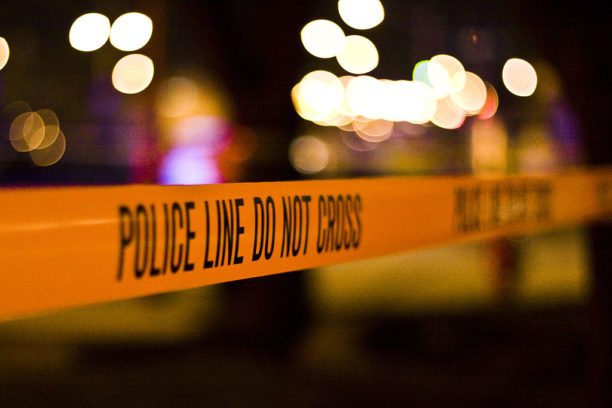A bipartisan House bill would launch a pilot program to test how small, nonlethal drones could help law enforcement manage active shooter situations and other high-risk scenarios.
On May 23, 2025, Representative Troy Nehls (R-TX) introduced the Deescalation Drone Pilot Program Act of 2025 (H.R. 3598), proposing a new approach to one of America’s most pressing public safety challenges. The bill would establish a Federal Aviation Administration pilot program to test how small, nonlethal drones equipped with deescalation tools could assist law enforcement during active shooter situations.
What the Bill Would Do
The legislation requires the FAA to establish a pilot program within two months of enactment, focusing specifically on active shooter situations and other high-risk scenarios where maintaining distance between law enforcement and potential threats could improve safety outcomes.
The program would examine several key areas: review of nonlethal weapons that can be attached to drones, training protocols for law enforcement personnel, operational safety guidelines, and effectiveness assessment of drones in indoor active shooter events.
Equipment specifications are carefully defined in the bill. The drones would be strictly prohibited from carrying any weapons as defined by existing law, but could be equipped with various nonlethal devices including sound distraction emitters, cameras and targeting sensors, speakers, and strobe lights.
The bill reaffirms existing prohibitions regarding unmanned aircraft armed with dangerous weapons under section 363 of the FAA Reauthorization Act of 2018, ensuring that the drones remain focused on deescalation rather than enforcement.
Bipartisan Support
The bill has attracted significant bipartisan support with 17 cosponsors total – 16 Republicans and 1 Democrat. Republican cosponsors include Representatives Brad Finstad (MN), Clay Higgins (LA), Lauren Boebert (CO), Pete Stauber (MN), Barry Moore (AL), Dan Newhouse (WA), Ryan Zinke (MT), Tony Wied (WI), Celeste Maloy (UT), Mike Ezell (MS), Wesley Hunt (TX), John Rutherford (FL), Tim Burchett (TN), Michael Guest (MS), and Elizabeth Van Duyne (TX).
The lone Democratic cosponsor is Representative Donald Davis (NC), who has also been active in drone-related national security legislation.
Nehls’ Drone Advocacy Record
Representative Nehls has established himself as a leading voice on drone policy in Congress, particularly for law enforcement applications. As a former law enforcement officer and sheriff, he brings practical experience to the legislative process.
In February 2025, Nehls co-introduced the bipartisan Directing Resources for Officers Navigating Emergencies (DRONE) Act of 2025 with Rep. Lou Correa (D-CA). This legislation would allow law enforcement agencies to use federal grants from the Edward Byrne Memorial Justice Assistance Grant and Community Oriented Policing Services programs to purchase and operate drones.
Previously, in September 2023, Nehls introduced the Drone Research and Innovation for Law Enforcement Act of 2023 (H.R. 5879), which aimed to establish a pilot research program within the FAA for non-lethal deescalation unmanned aerial vehicles. That bill included requirements for devices to be manufactured in the United States and focused on reducing reliance on Chinese-manufactured systems.
As Chairman of the Aviation Subcommittee, Nehls has also been actively involved in overseeing implementation of the FAA Reauthorization Act of 2024, which includes provisions for integrating drones and advanced air mobility systems into the national airspace.
Industry Context
The drone industry has seen significant growth in public safety applications over the past several years. According to industry experts, drones have revolutionized some verticals, such as industrial inspection and mapping, where they provide significant return on investment. However, for many large-scale applications, drones still require specialized skills and new software systems for effective deployment.
The focus on deescalation represents a measured approach to integrating drone technology into law enforcement operations. Rather than weaponizing drones, the legislation emphasizes their potential to improve officer and public safety by providing better situational awareness and nonlethal intervention tools.
Next Steps
The Deescalation Drone Pilot Program Act of 2025 currently awaits action in the House Committee on Transportation and Infrastructure, where it was referred upon introduction. Given the bipartisan support and practical focus on public safety applications, the legislation appears well-positioned for potential advancement through the legislative process.
The bill represents the latest in a series of congressional efforts to address drone policy for law enforcement applications, building upon previous legislative work while specifically targeting active shooter scenarios – a growing concern for communities across the United States.
Read more:


Miriam McNabb is the Editor-in-Chief of DRONELIFE and CEO of JobForDrones, a professional drone services marketplace, and a fascinated observer of the emerging drone industry and the regulatory environment for drones. Miriam has penned over 3,000 articles focused on the commercial drone space and is an international speaker and recognized figure in the industry. Miriam has a degree from the University of Chicago and over 20 years of experience in high tech sales and marketing for new technologies.
For drone industry consulting or writing, Email Miriam.
TWITTER:@spaldingbarker
Subscribe to DroneLife here.


